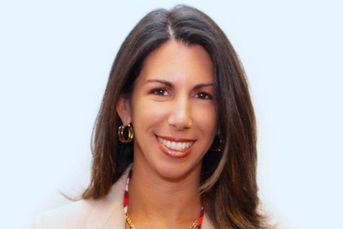CFP Board issues white paper on increasing diversity in financial planning

Less than 3.5% of the 80,000 certified financial planners in the United States in 2017 were black or Latino.
Diversity and inclusion within the professional ranks of the financial planning industry continues to lag behind the U.S. minority population.
According to a white paper from the Certified Financial Planner Board of Standards’ Center for Financial Planning, less than 3.5% of the 80,000 certified financial planners in the U.S. in 2017 were black or Latino. Across the nation, blacks represented 13.3% of the population, while Latinos accounted for 17.8%.
The center released the white paper Tuesday during its first diversity summit in New York.
“As the country becomes increasingly diverse and wealth continues to accumulate among people of color, savvy firms will diversify their ranks to reflect the diversity of the public,” said Richard Salmen, chairman of the board of directors of the CFP Board, in a statement.
Although there has been little change in the number of diverse financial professionals, census projections estimate that people of color will become the majority of the U.S. population in 2045. The buying power of black and Latino communities collectively is estimated at over $1 trillion.
By failing to tap into communities with growing wealth, the center argues that firms are missing opportunities to increase their competitive advantage.
“I see the potential in affluent communities of color,” said Keith Beverly, financial adviser and founding member of moXY Financial, a network focusing on financial education in communities of color. “Thousands of lawyers, doctors and MBAs are graduating every year who would prefer to work with a financial adviser of color, and that’s my network of people.”
The center found that the lack of awareness of the profession and financial barriers keep blacks and Latinos from entering the field. Many black and Latino financial planners also find the lack of diversity and representation to be intimidating. Twenty-nine percent of black CFP professionals cited the lack of mentors as a root cause for lack of diversity. Almost one-fifth, or 18%, of Latino CFP professionals said the same thing.
Financially, the cost of preparing for and attaining CFP certification can be daunting. The costs, which can range from $6,000 to $10,000, act as a barrier for disenfranchised communities.
Nevertheless, CFPs of color who go into the field revealed that they found the profession satisfying, citing the ability to provide and expand financial services in underserved communities and the relatively high and stable income.
The survey also found that investing in a diverse workforce can improve the financial performance in a firm. A 2015 McKinsey report found that for every 10% increase in racial and ethnic diversity in executive roles, earnings before interest and taxes rose 0.8%.
According to the paper, firms can embed diversity into their growth strategy, educate leaders on the value of a diverse workforce and provide financial support for black and Latino employees seeking CFP certification.
(More: Why a lack of diversity among financial planners persists)
Learn more about reprints and licensing for this article.








